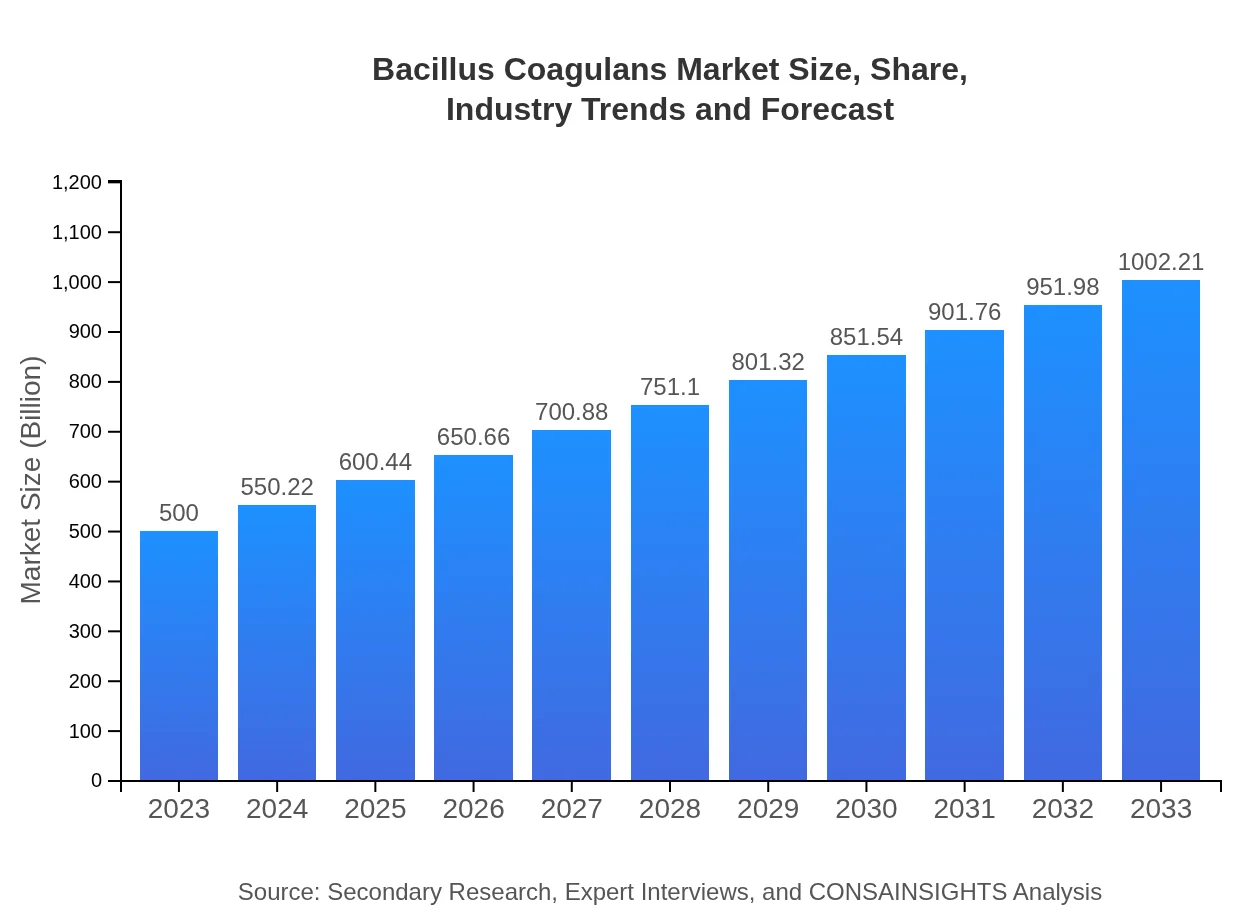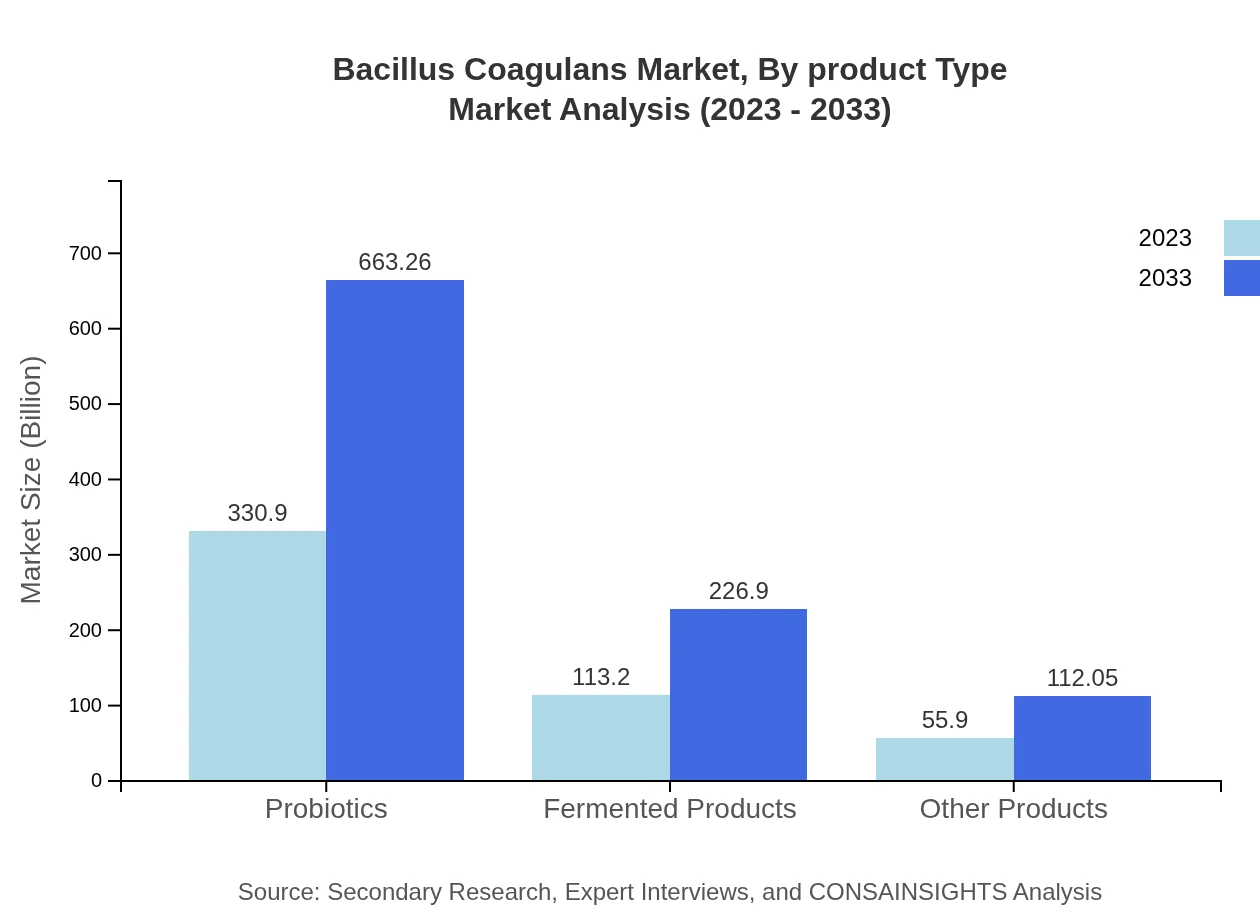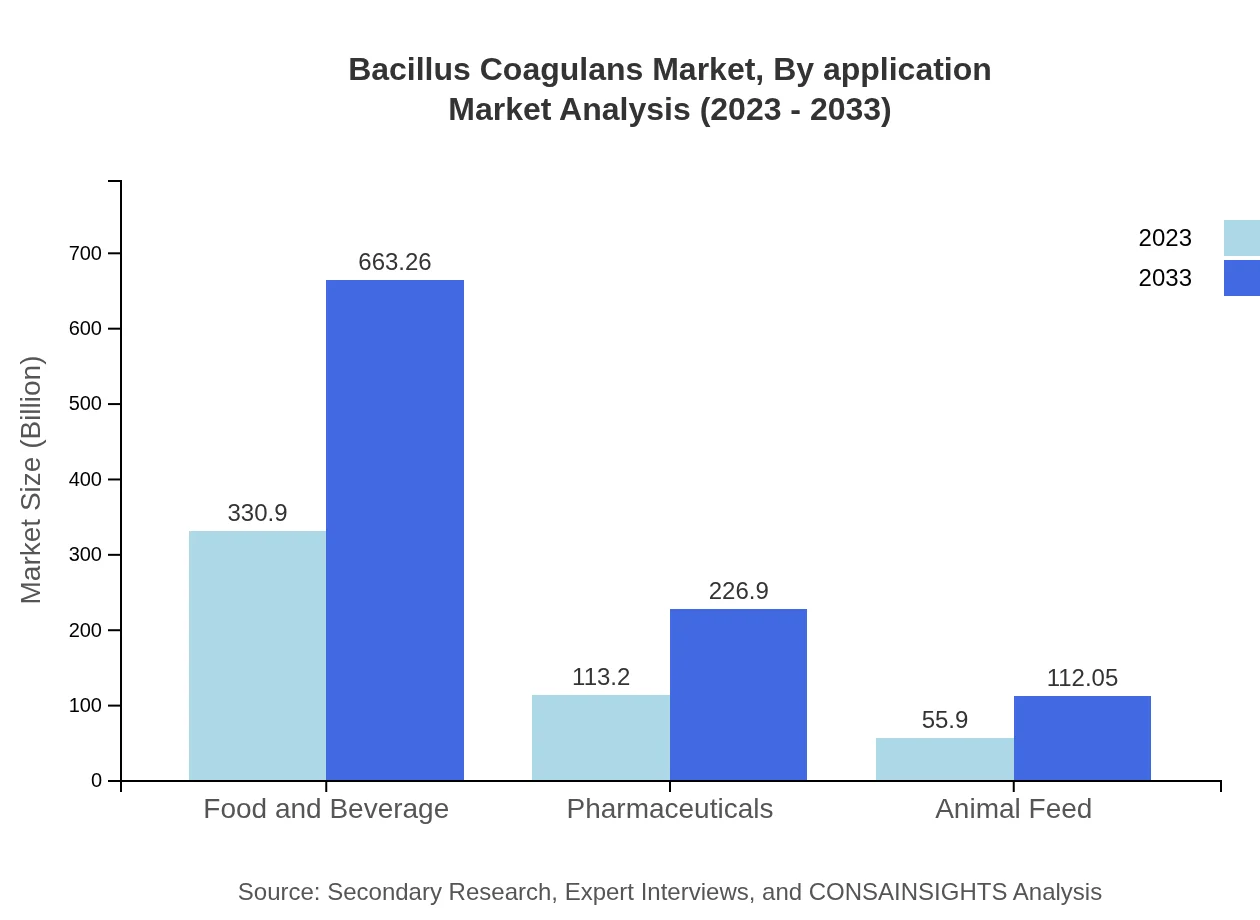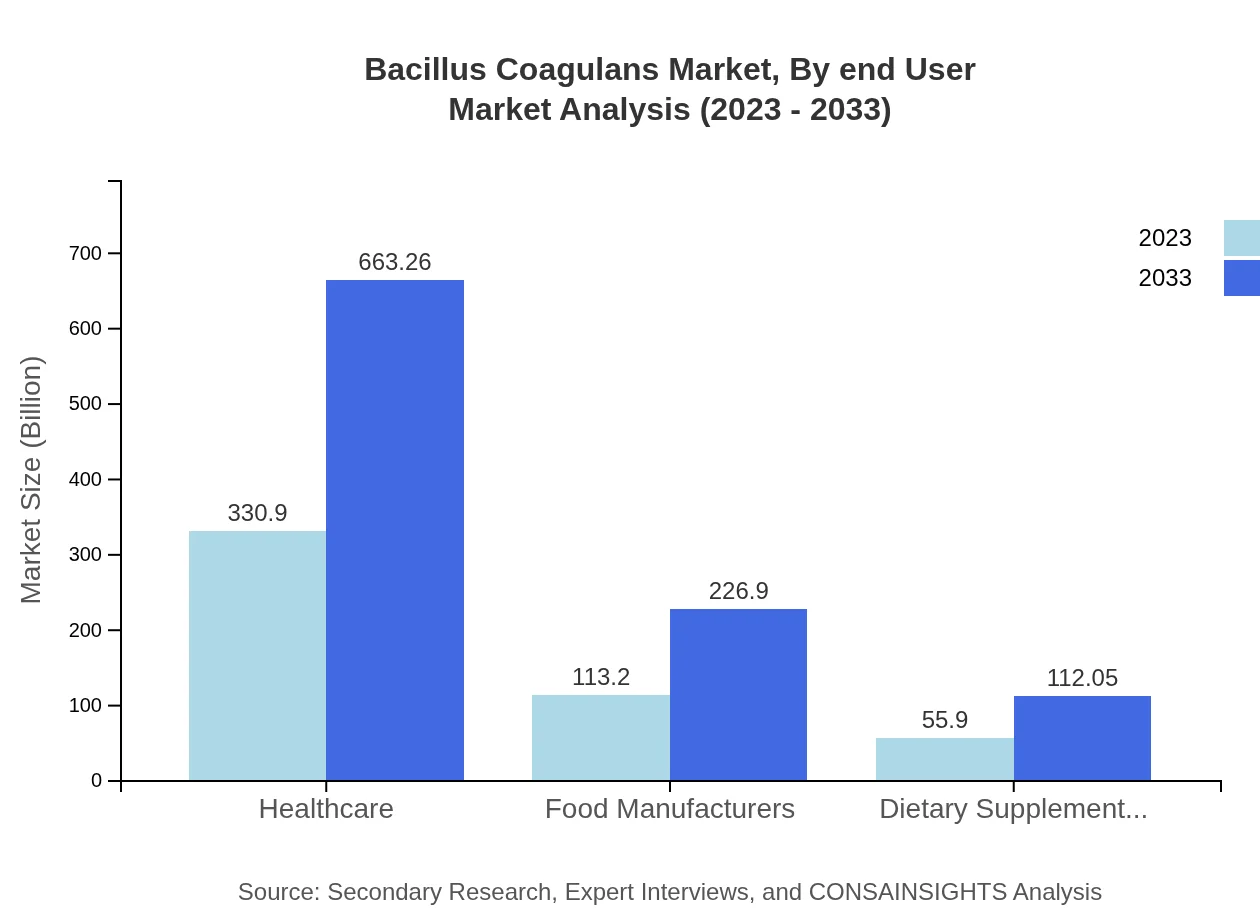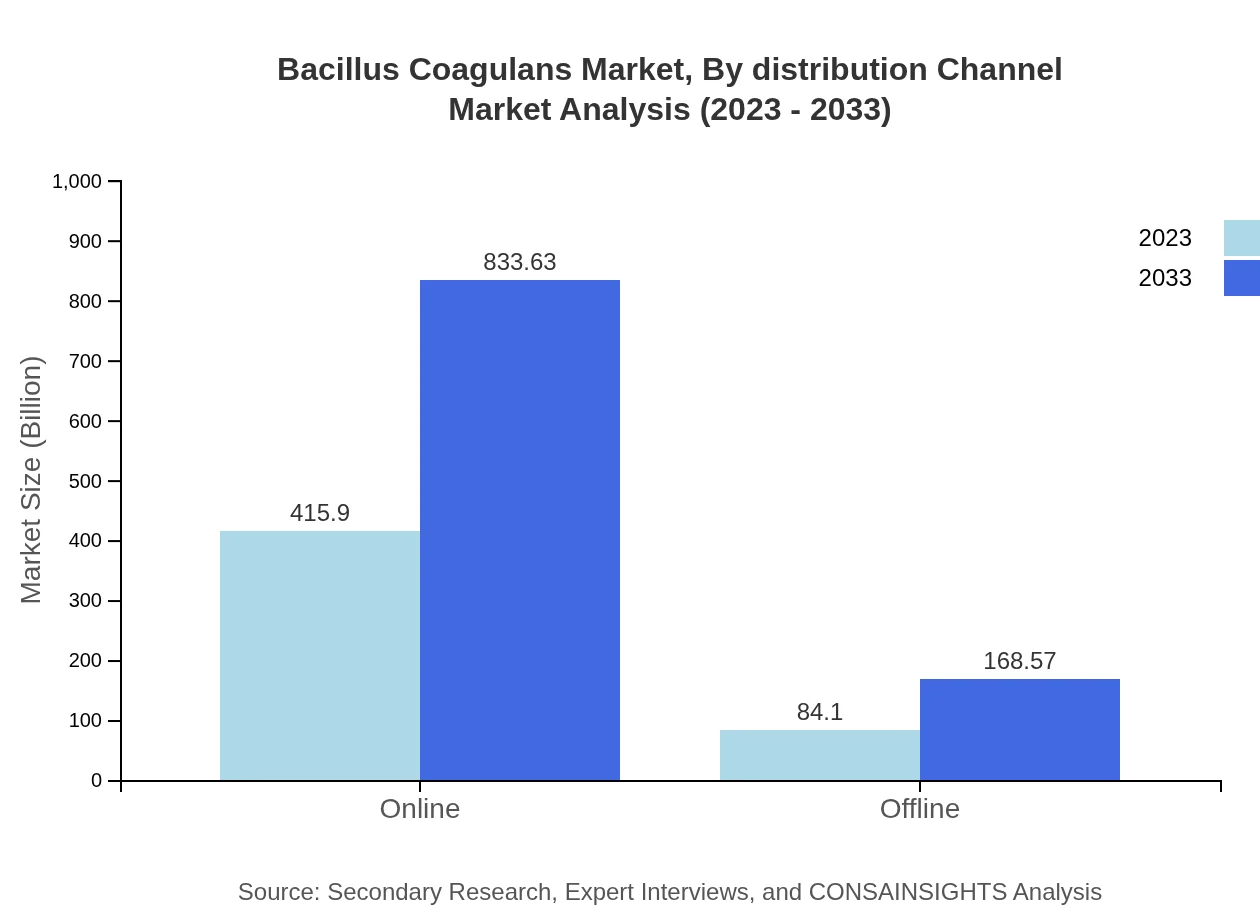Bacillus Coagulans Market Report
Published Date: 31 January 2026 | Report Code: bacillus-coagulans
Bacillus Coagulans Market Size, Share, Industry Trends and Forecast to 2033
This report provides a comprehensive analysis of the Bacillus Coagulans market from 2023 to 2033, highlighting market size, growth forecasts, industry analysis, segmentation, and regional insights to help stakeholders make informed decisions.
| Metric | Value |
|---|---|
| Study Period | 2023 - 2033 |
| 2023 Market Size | $500.00 Million |
| CAGR (2023-2033) | 7% |
| 2033 Market Size | $1002.21 Million |
| Top Companies | ProbioFerm, Kerry Group, Bifodan, Lallemand |
| Last Modified Date | 31 January 2026 |
Bacillus Coagulans Market Overview
Customize Bacillus Coagulans Market Report market research report
- ✔ Get in-depth analysis of Bacillus Coagulans market size, growth, and forecasts.
- ✔ Understand Bacillus Coagulans's regional dynamics and industry-specific trends.
- ✔ Identify potential applications, end-user demand, and growth segments in Bacillus Coagulans
What is the Market Size & CAGR of Bacillus Coagulans market in 2033?
Bacillus Coagulans Industry Analysis
Bacillus Coagulans Market Segmentation and Scope
Tell us your focus area and get a customized research report.
Bacillus Coagulans Market Analysis Report by Region
Europe Bacillus Coagulans Market Report:
The European Bacillus Coagulans market is valued at USD 121.10 million in 2023 and is expected to grow to USD 242.73 million by 2033, fueled by stringent regulations pertaining to food safety and the increasing popularity of probiotics across several applications.Asia Pacific Bacillus Coagulans Market Report:
The Asia Pacific region's Bacillus Coagulans market was valued at USD 107.10 million in 2023 and is projected to double to USD 214.67 million by 2033. The region's growth is driven by increasing consumer health awareness, expansion of pharmaceutical industries, and demand for probiotics in food and dietary supplementation.North America Bacillus Coagulans Market Report:
North America showed a market size of USD 169.25 million in 2023, projected to grow to USD 339.25 million by 2033. The extensive focus on health and wellness trends, coupled with a robust pharmaceutical and dietary supplement sector, drives market growth in this region.South America Bacillus Coagulans Market Report:
In South America, the Bacillus Coagulans market recorded a value of USD 33.70 million in 2023, expected to reach USD 67.55 million by 2033. The rising demand for bio-based products and growth in the food and beverage sector are key growth factors.Middle East & Africa Bacillus Coagulans Market Report:
The Bacillus Coagulans market in the Middle East and Africa was valued at USD 68.85 million in 2023 and is anticipated to grow to USD 138.00 million by 2033. The growth is supported by rising trends in health supplements and the increased focus on improving livestock production.Tell us your focus area and get a customized research report.
Bacillus Coagulans Market Analysis By Product Type
The product types include healthcare, dietary supplements, pharmaceuticals, food manufacturers, and animal feed. The healthcare segment alone is projected to grow from USD 330.90 million in 2023 to USD 663.26 million by 2033, showcasing a growing recognition of probiotics' health benefits.
Bacillus Coagulans Market Analysis By Application
Applications for Bacillus Coagulans span various industries—namely, food and beverage, dietary supplements, and pharmaceuticals. This segment is crucial, as it highlights the versatility of Bacillus Coagulans, with the food and beverage application projected to double its size from USD 330.90 million in 2023 to USD 663.26 million by 2033.
Bacillus Coagulans Market Analysis By End User
End-users include health-conscious consumers, food manufacturers, and pharmaceutical companies. The health supplements market continues to reflect substantial opportunities, with expected growth largely attributable to rising consumer preferences for natural and functional foods.
Bacillus Coagulans Market Analysis By Distribution Channel
Distribution channels include online and offline sales, which are critical to market accessibility. The online segment is exhibiting rapid growth, expected to rise from USD 415.90 million in 2023 to USD 833.63 million by 2033, driven by changing consumer shopping behaviors enhanced by widespread internet access.
Bacillus Coagulans Market Trends and Future Forecast
Tell us your focus area and get a customized research report.
Global Market Leaders and Top Companies in Bacillus Coagulans Industry
ProbioFerm:
ProbioFerm is a key player specializing in probiotic formulations, focusing on healthy digestion and overall wellness with their Bacillus Coagulans products.Kerry Group:
Kerry Group is renowned for its innovative health ingredients and solutions, actively contributing to the Bacillus Coagulans market through high-quality probiotic offerings tailored for food and dietary supplements.Bifodan:
Bifodan specializes in probiotic products featuring Bacillus Coagulans, providing healthcare solutions designed for digestive health and immune support.Lallemand:
Lallemand is a global leader in yeast and bacteria, offering strong biotechnological solutions, including Bacillus Coagulans for diverse applications.We're grateful to work with incredible clients.









FAQs
What is the market size of bacillus Coagulans?
The Bacillus Coagulans market is projected to grow from a market size of $500 million in 2023 to significant expansion by 2033, with a CAGR of 7%. This growth reflects increasing demand for probiotics across various sectors.
What are the key market players or companies in this bacillus Coagulans industry?
Key players in the Bacillus Coagulans industry include major healthcare companies, food manufacturers, and dietary supplement producers who leverage this probiotic for various product applications, driving innovation and competition.
What are the primary factors driving the growth in the bacillus Coagulans industry?
The growth of the Bacillus Coagulans industry is driven by rising health awareness, growing demand for probiotics in food and beverages, and increasing consumer interest in dietary supplements for gut health and wellness.
Which region is the fastest Growing in the bacillus Coagulans?
The fastest-growing region in the Bacillus Coagulans market is North America, projected to expand from $169.25 million in 2023 to $339.25 million by 2033, reflecting a robust demand in healthcare and dietary sectors.
Does ConsaInsights provide customized market report data for the bacillus Coagulans industry?
Yes, ConsaInsights offers customized market report data for the Bacillus Coagulans industry, allowing clients to obtain tailored insights that meet specific research needs and enhance strategic decision-making.
What deliverables can I expect from this bacillus Coagulans market research project?
From the Bacillus Coagulans market research project, clients can expect comprehensive reports including market size, growth forecasts, competitive analysis, segmentation data, and trends influencing industry dynamics.
What are the market trends of bacillus Coagulans?
Current trends in the Bacillus Coagulans market include increasing integration of probiotics in food production, a surge in online sales platforms, and heightened consumer interest in health benefits associated with probiotics.

